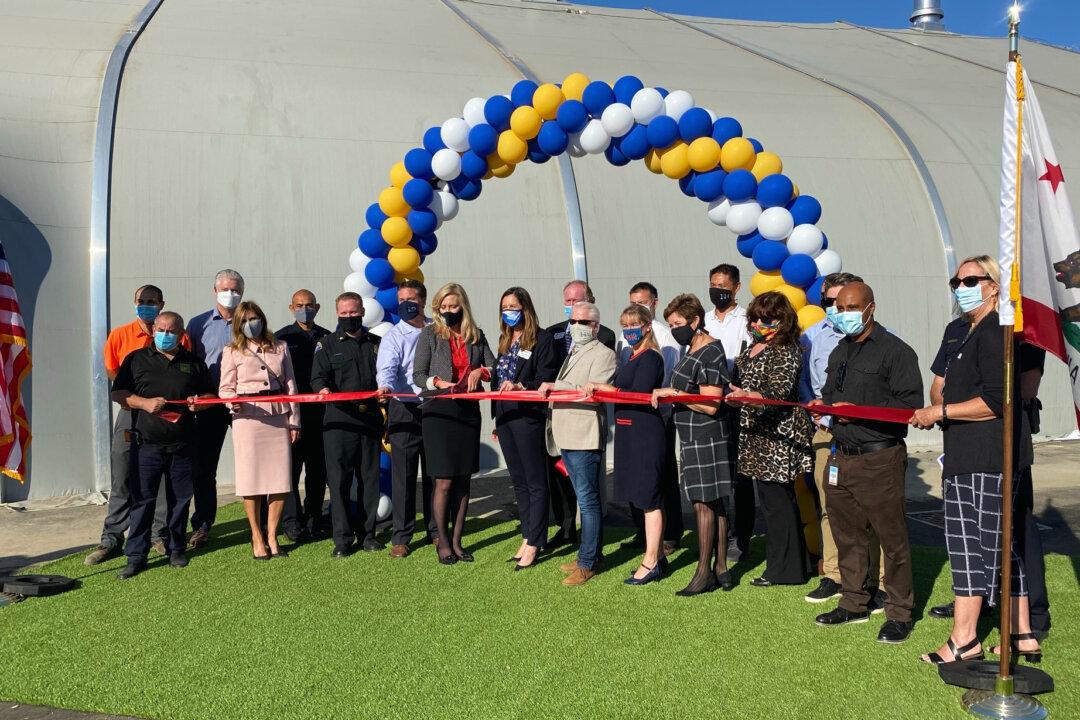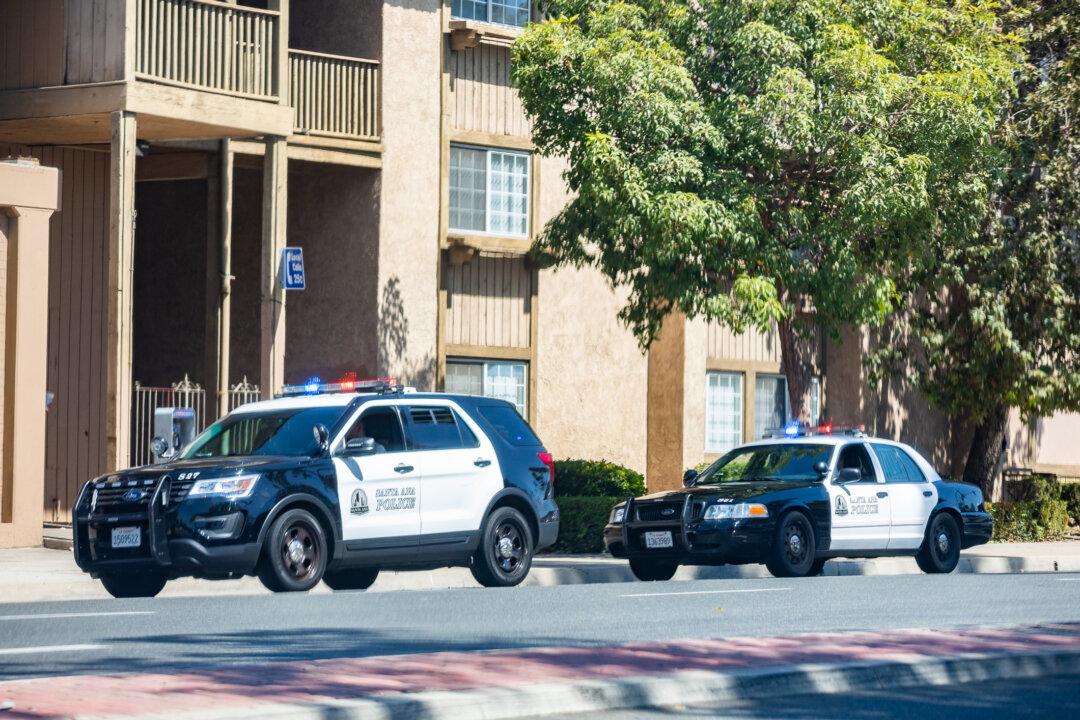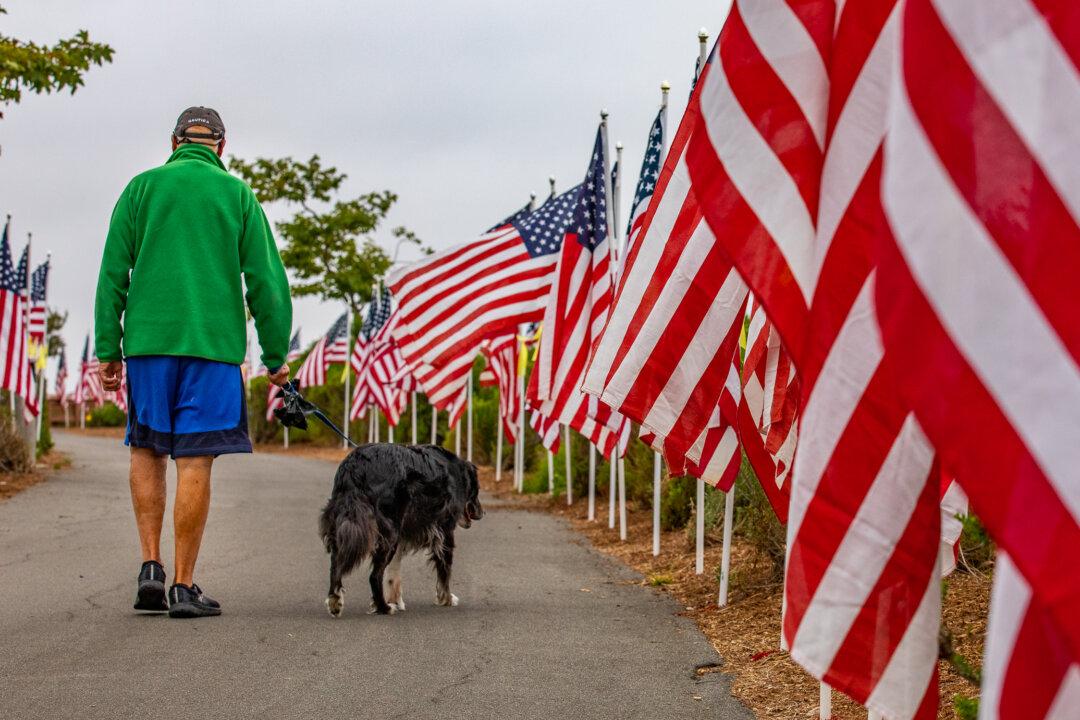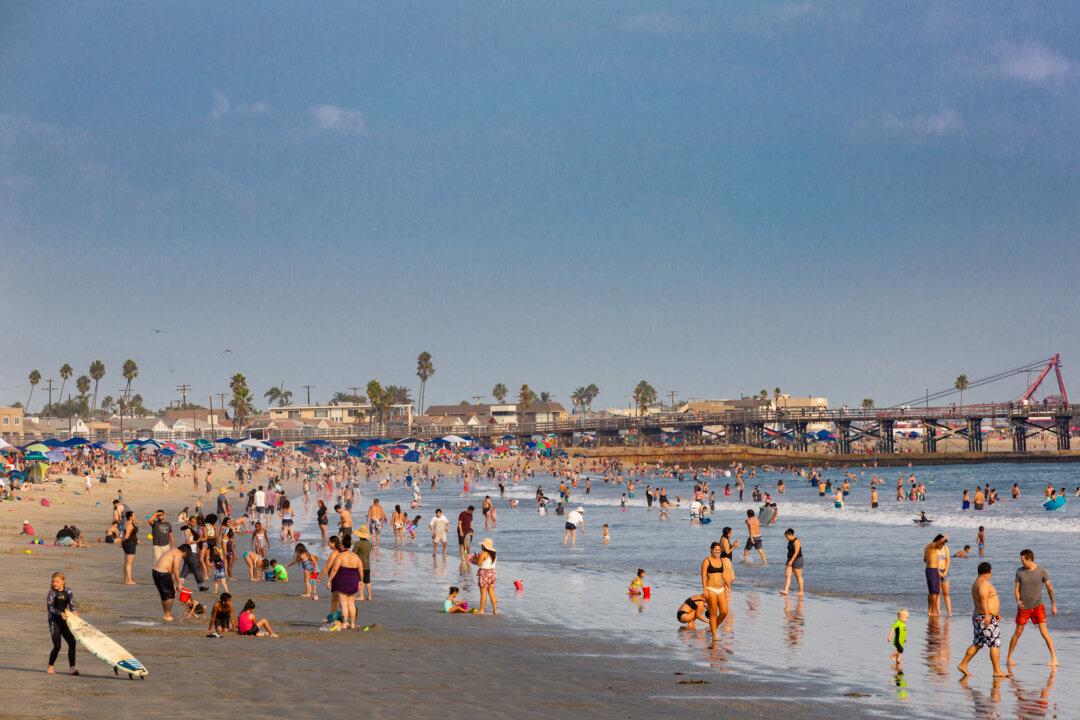HUNTINGTON BEACH, Calif.—Officials in Huntington Beach held a ribbon-cutting ceremony to signify the opening of a new navigation center that will provide shelter and services for the city’s homeless population.
The navigation center, located at 17642 Beach Boulevard near Cameron Lane, will provide comprehensive support services to the needy and will be equipped with 24/7 security. The shelter is a large tent, called a “sprung” structure, designed to house 174 homeless adults.





